WTAD 2021: Leveraging the Power of Science and Technology to Reduce Tsunami Risk for Current and Future Generations

- English
Date: 8:30 - 10:00 EDT, 5 November 2021
The event will be broadcasted by the UN Web TV at http://webtv.un.org/ and go live on Facebook.
There will be captioning available.
Co-organized by the Permanent Missions of Chile, Fiji, Japan, and Maldives, the Co-Chairs of the Group of Friends of Disaster Risk Reduction (the Permanent Missions of Australia, Indonesia, Norway, and Peru), United Nations Office for Disaster Risk Reduction (UNDRR), the United Nations Development Programme (UNDP), and the United Nations Educational, Scientific and Cultural Organization (UNESCO).
World Tsunami Awareness Day, Full Coverage Here:
BACKGROUND
Six years ago, the United Nations General Assembly designated 5 November as World Tsunami Awareness Day (WTAD). The General Assembly invited all Member States, the United Nations system, international and regional organizations, as well as civil society, to observe WTAD each year and raise awareness of the risk posed by tsunamis. Linking with the 2021 International Day for Disaster Risk Reduction and the Sendai Seven Campaign, which will focus on Sendai Framework Target F to substantially enhance international cooperation to developing countries for disaster risk reduction, the WTAD on-line event will consider international cooperation for tsunami awareness and risk reduction with a special focus on science, technology, and innovation.
The objective of thIs event hosted from New York is to highlight the importance of international cooperation in raising awareness of and reducing the risk posed by tsunamis within a multi-hazard approach to disaster risk reduction. Specifically, the event will highlight the critical importance of partnerships and synergies between development cooperation actors, the science and technology sectors, and research and academic institutions. The event will share good practice and innovative technologies in reducing tsunami risk as well as solutions that have been effective in bridging the gap and adapting these technologies to meet the needs of developing countries.
As a contribution to the implementation of approach put forward in the Secretary-General’s recent report on “Our Common Agenda”, the event will also shine a spotlight on youth and young scientists engaged in disaster risk reduction, including tsunami risk reduction. By engaging young people working in science and technology, the event aims to propose solutions to ensure policy and investment decisions made today do not create risk for young and future generations. The event also aims to leverage the links between World Tsunami Awareness Day activities and the United Nations Decade of Ocean.
Ahead of the event, we asked Mr. Fumihiko Imamura, the Director of the International Research Institute of Disaster Science, Tohoku University: How does the climate change affect tsunami risk? Please see his message below.
SPEAKERS
Moderator
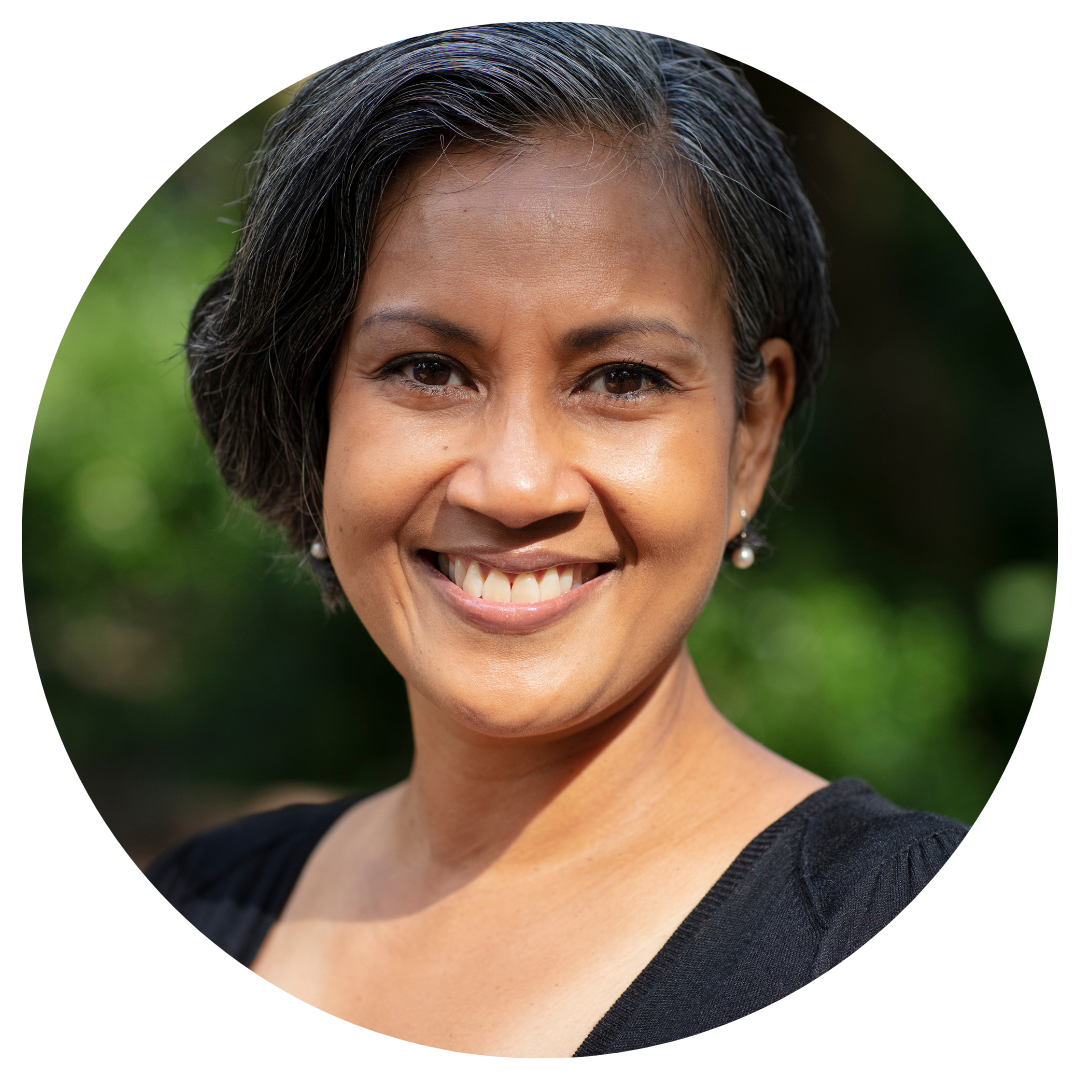 |
Ms. Shakuntala Santhiran Shakuntala Santhiran is an international broadcast journalist and moderator. She has more than two decades of experience as a television news anchor, reporter and producer with leading media organizations including the BBC, CNN International and Al Jazeera English. Shaks was living in Kyoto when the Tohoku earthquake and tsunami hit the Northeast coast of Japan on March 11, 2011. Shaks was rushed to Tokyo to report for Al Jazeera. She speaks several languages including English, Mandarin and conversational Japanese. Shaks is a passionate advocate for animal rights. |
Opening Remarks
 |
H.E. Ambassador Mr. Abdulla Shahid |
|
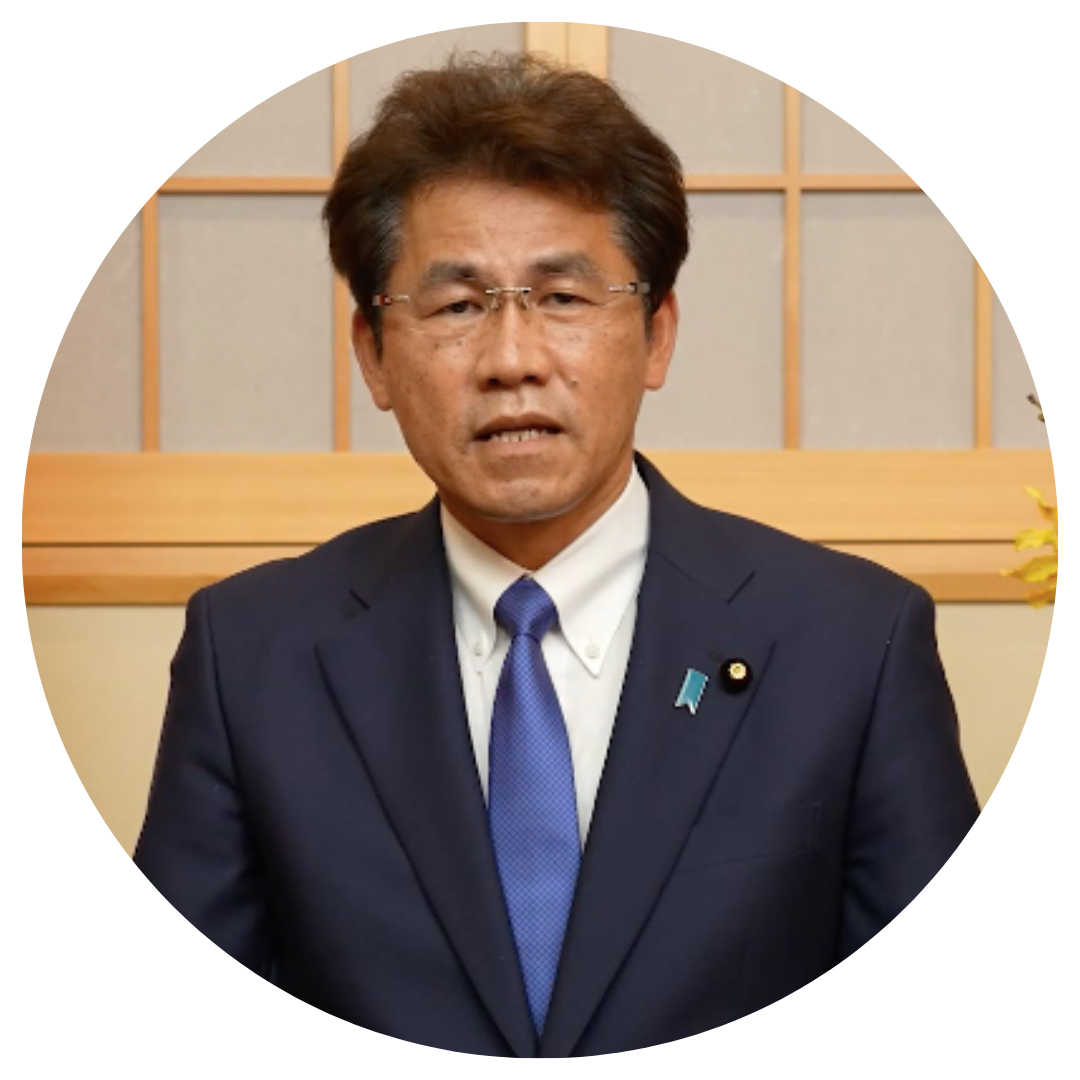 |
Mr. MIYAKE Shingo |
|
 |
H.E. Ambassador Ms. Fiona Webster Deputy Head of the Permanent Mission of Australia to the United Nations Dr Webster is a senior career officer with the Department of Foreign Affairs and Trade (DFAT). She commenced as Australia’s Ambassador and Deputy Permanent Representative to the UN in December 2020. Immediately prior to this, she was A/g First Assistant Secretary of DFAT’s Consular and Crisis Management Division. Dr Webster has worked in DFAT since 2015, firstly as Director of the United Nations Economic and Development team and then as Director of the Media and Parliamentary team. Before joining DFAT, she worked in the Department of the Prime Minister and Cabinet’s International Division, leading the team responsible for Australia’s relationship with Europe, multilateral organisations and the Pacific. Dr Webster holds a PhD and Bachelor of Arts (Hons) in philosophy from the Australian National University. |
|
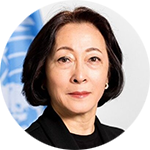 |
Ms. Mami Mizutori Special Representative of the Secretary-General, United Nations Office for Disaster Risk Reduction (UNDRR) Ms. Mami Mizutori is leading United Nations Office for Disaster Risk Reduction. Before joining UNDRR, she has served as Executive Director of the Sainsbury Institute for the Study of Japanese Arts and Cultures, University of East Anglia, United Kingdom. Prior to the Institute, she served for 27 years in the Japanese Ministry of Foreign Affairs in various capacities, including as Budget Director, Director of the Japan Information and Culture Centre at the Embassy of Japan in London, Director of the National Security Policy Division, Director of the United Nations Policy Division, Director of the Status of United States Forces Agreement Division and Deputy Director of the Personnel Division. She has worked in London, Washington, D.C., and Mexico City. She has taught courses on governance in East Asia at Ritsumeikan Asia Pacific University and international studies at Waseda University, Tokyo. |
Video message from youth
Ms. Rina Suryani Oktari
Faculty of Medicine, Syiah Kuala University; Tsunami & Disaster Mitigation Research Center, Indonesia
Ms. Nur Safitri Lasibani
Executive Director at Yayasan Sikola Mombine, Palu, Central Sulawesi, Indonesia
Ms. Alinne Melina Olvera Martínez
BSc, Mexican School of Risk Management and Civil Protection Professionals, Mexico
Mr. Alexander Virgili
Political scientist, analyst and disaster management expert, Italy
Ms. Anna Shinka
Ph.D student, Tohoku University, Japan
Mr. Yu Watanabe
Master student, Tohoku University, Japan
Ms. Aina Sylvania Andrianjakatina
Member of the Africa Youth Advisory Board on DRR (Southern Africa Representative), Researcher at the Centre of Economic Study and Research for Development, Antananarivo, Madagascar
Ms. Mariyam Shizna
Lead U-INSPIRE Maldives
Ms. Katarina Rayawa
Seismology Section of the Mineral Resources Department under the Ministry of Lands and Mineral Resources, Fiji
Ms. Josephine Falemaka
Youth volunteer for the Tonga Red Cross Society, Ha’apai Red Cross Branch, Tonga
Keynote Speaker
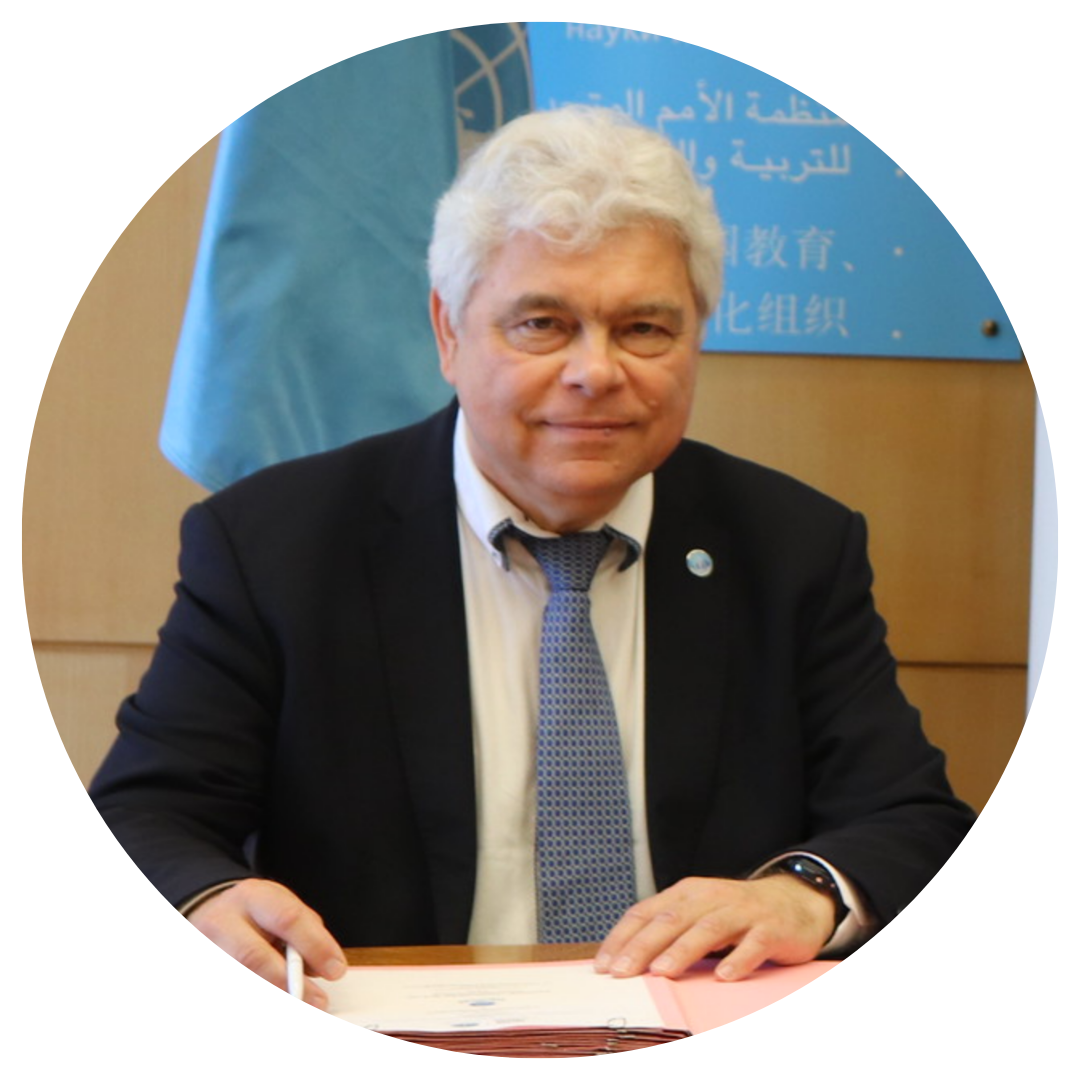 |
Dr. Vladimir Ryabinin Executive Secretary, Intergovernmental Oceanographic Commission of UNESCO Dr. Vladimir Ryabinin is the Executive Secretary of the IOC, the Intergovernmental Oceanographic Commission of UNESCO, and Assistant Director-General of UNESCO. An oceanographer, marine engineer, meteorologist, and climatologist, Dr Ryabinin has been involved in various capacities in the activities of the United Nations. He contributed to the core design and coordination of the Global Ocean Observing System, the World Climate Research Programme, and the International Polar Year 2007/2008. Dr. Ryabinin is focussed on creating a solid scientific foundation for managing the ocean sustainably, including through the UN Decade of Ocean Science for Sustainable Development, 2021-2030. |
Panel Discussion
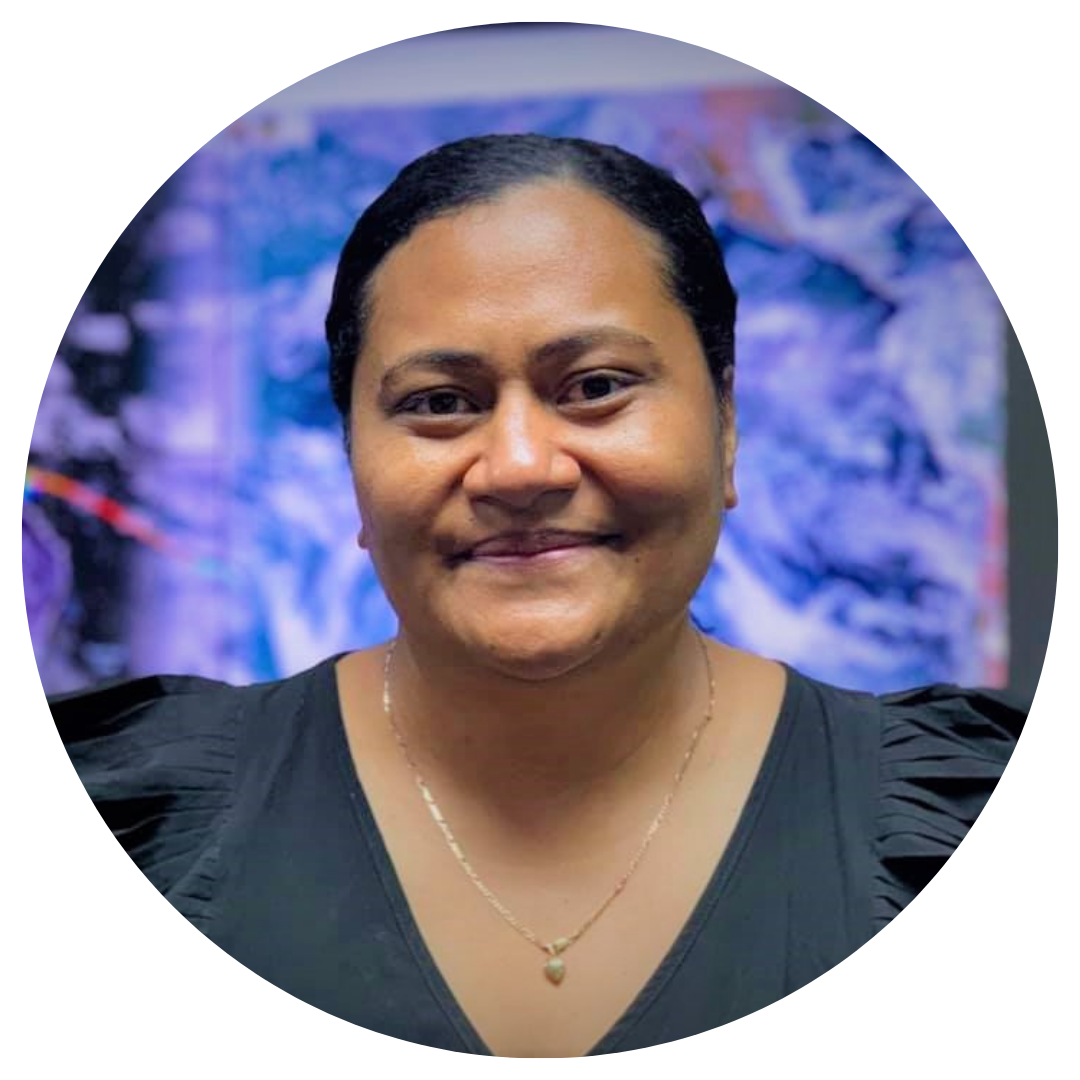 |
Ms. Vasiti Soko Director, Fiji National Disaster Management Office Vasiti’s industry experience spans 15 plus years in the highly technical field of geospatial science and surveying. She has assisted a number of significant projects while working for the Fijian Government including developing a disaster-integrated system prior taking on her current role. She has also worked across a number of regional projects in Nauru, Federate of Micronesia, Palau, Tuvalu, Marshall Island, Kiribati and Australia. |
|
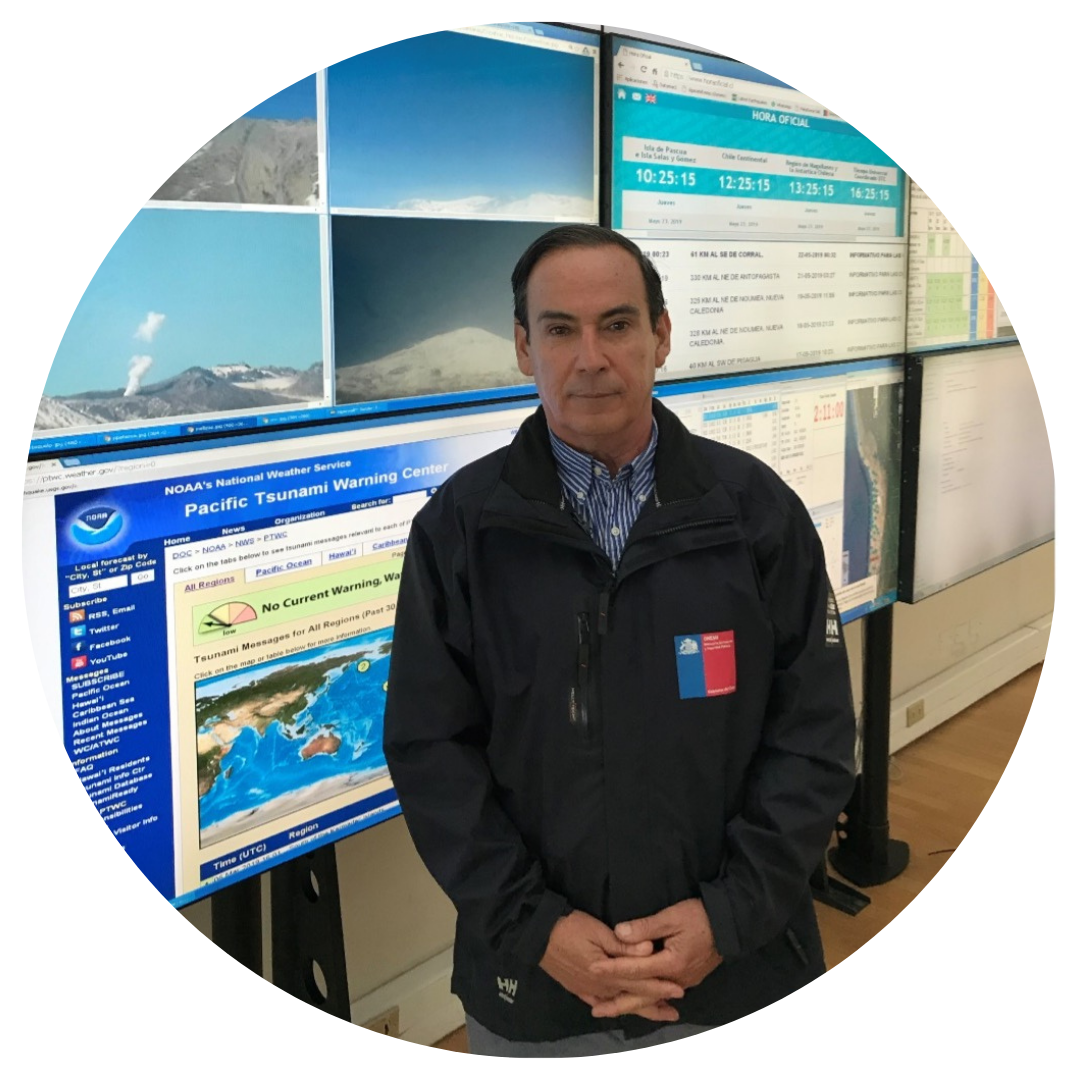 |
Mr. Ricardo Toro Director, Chile’s Office of National Emergencies (ONEMI) Ricardo Toro is the National Director of Chile’s Office of National Emergencies (ONEMI). He was appointed as National Director of ONEMI on December 20, 2012. He achieved the rank of General in the Chilean Army (ret.), with postgraduate studies in Business Administration, and Master’s degrees in Human Resources and Strategic Planning. In October 2017, he was appointed as member of the Consultative Group of the Central Emergency Action Fund (CERF) that guides and advises the Secretary-General of the United Nations on the use and allocation of resources from the Fund, which constitutes one of the mechanisms more effective in supporting rapid response to people affected by humanitarian crises, including so-called “forgotten crises” and underfunded humanitarian emergencies. |
|
 |
Ms. Gina Bonne Chargée de Mission, Gender and Risk Reduction, The Indian Ocean Commission |
|
 |
Mr. Ronald Jackson Head of the Disaster Risk Reduction, Recovery for Building Resilience Team, UNDP Heads the Disaster Risk Reduction & Recovery Team (DRT) for Building Resilience in the United Nations Development Programme (UNDP) the Disaster Risk Reduction & Recovery Team (DRT) for Building Resilience in the United Development Programme (UNDP) in Geneva. He is a member of both the Crisis Bureau senior management team and the GPN management team. His appointment on May 1s, 2020 follows seven (7) years of unwavering and exemplary service as, Executive Director of the Caribbean Disaster Emergency Management Agency (CDEMA). Under his stewardship, the Agency gained further recognition and prominence throughout the Caribbean and globally as one of the foremost regional disaster risk management institutions and a preferred partner for a safe and more resilient Caribbean. |
|
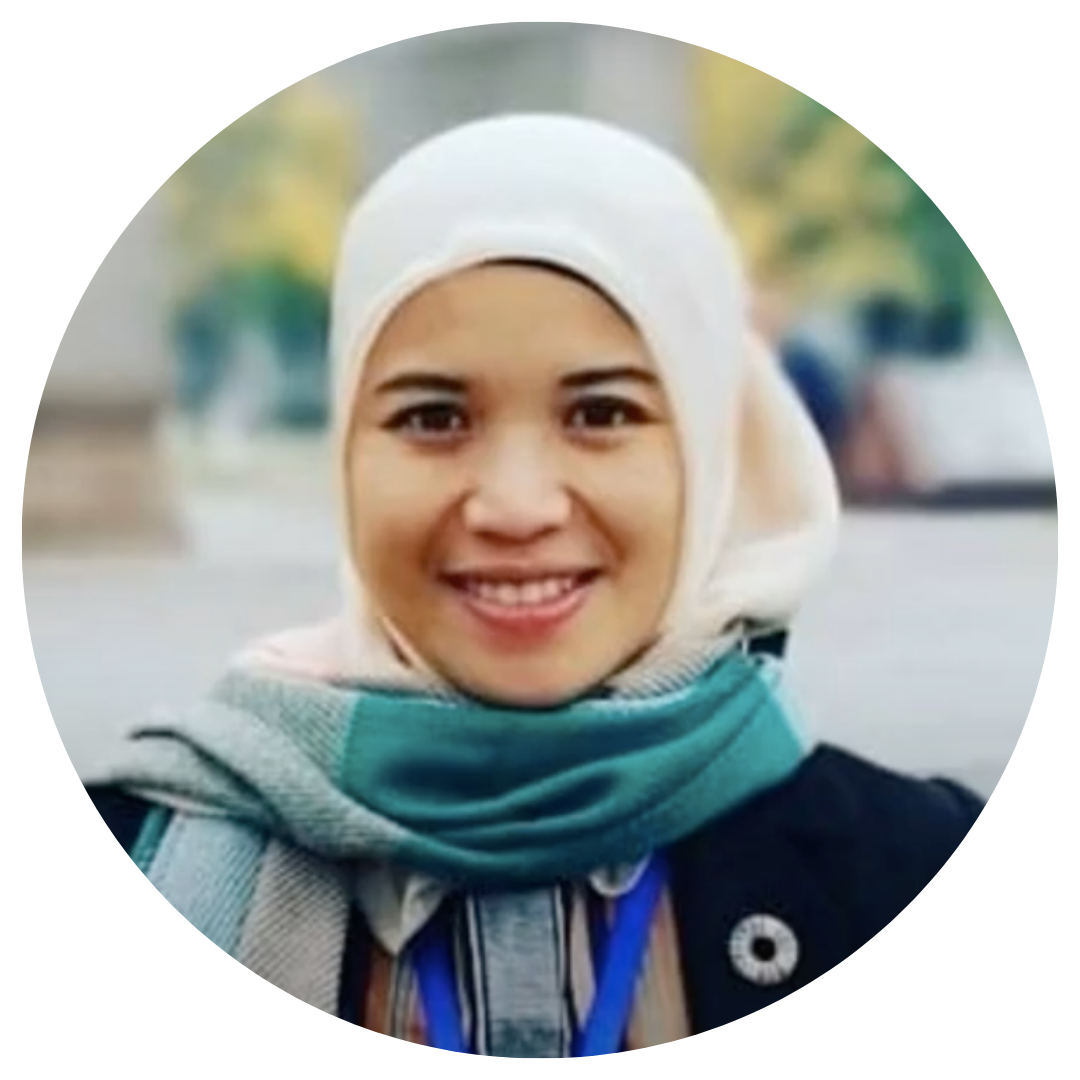 |
Dr. Nuraini Rahma Hanifa Secretary General, U-INSPIRE Alliance - Junior Researcher, Research Center for Geotechnology, National Research and Innovation Agency (BRIN) Dr. Nuraini Rahma Hanifa is the 2021 winner of the WIN DRR Leadership Award for her work as a Rising Star in the field of disaster risk reduction. She works with the Research Center for Geotechnology, Research Organization of Earth Sciences, National Research and Innovation Agency (BRIN), previously known as Indonesia Institute of Sciences (LIPI). Rahma founded U-INSPIRE Indonesia in 2018 and U-INSPIRE Alliance together with 8 countries in 2019. She has been an appointed young scientist representative in the Asia Pacific Science, Technology and Academia Advisory Group (AP-STAG) of UNDRR. |
|
|
|
Closing Remarks
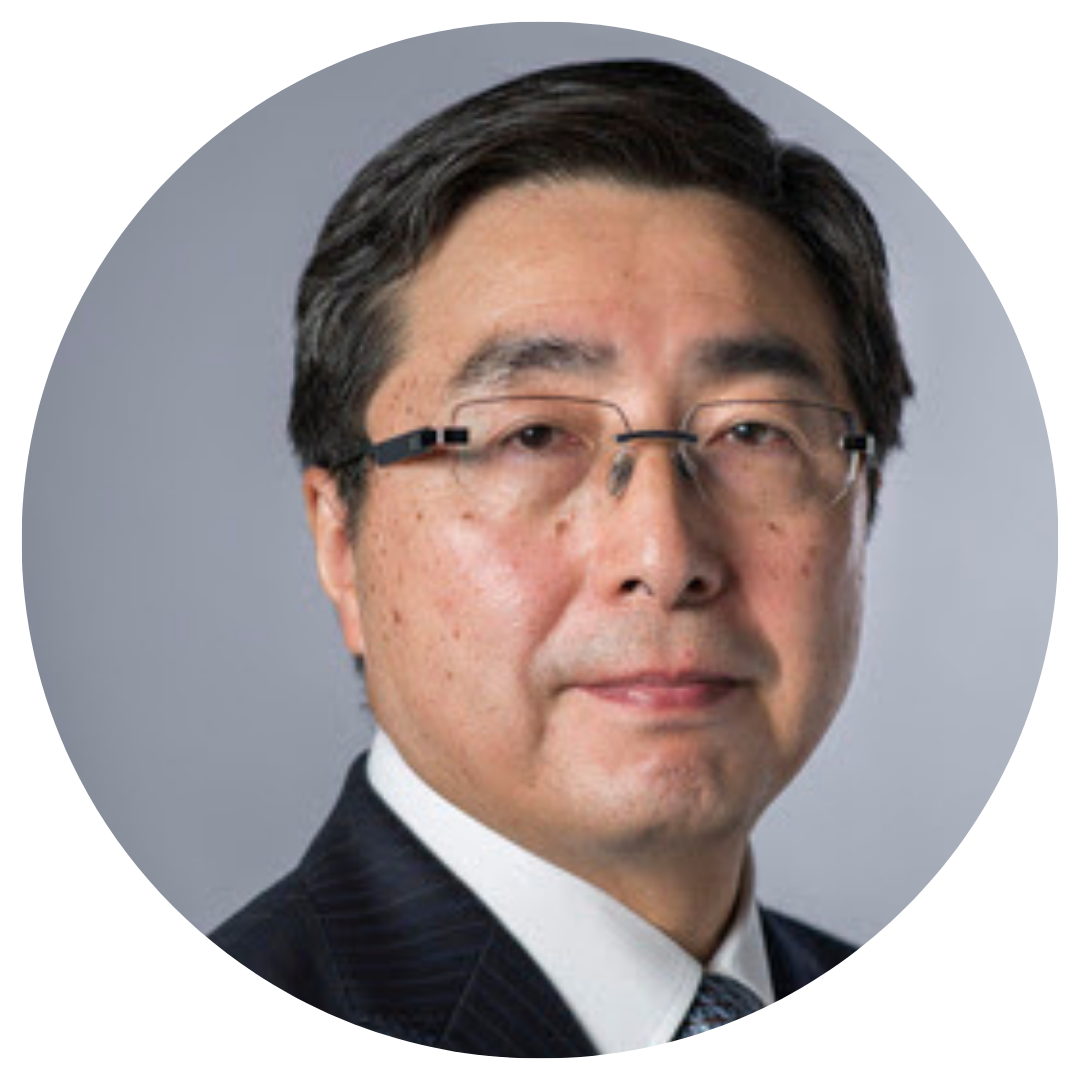 |
H.E. Ambassador Mr. Kimihiro Ishikane Permanent Representative of Japan to the United Nations in New York |